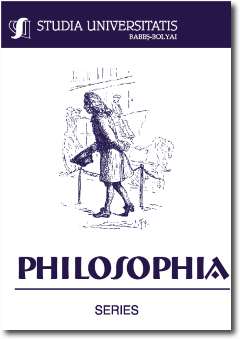PHENOMENOLOGY BETWEEN EGO-SPLIT AND INFINITE REGRESS: THE DEBATES OF TRANSCENDENTAL REFLECTION AROUND 1930
PHENOMENOLOGY BETWEEN EGO-SPLIT AND INFINITE REGRESS: THE DEBATES OF TRANSCENDENTAL REFLECTION AROUND 1930
Author(s): Peter VargaSubject(s): Philosophy
Published by: Studia Universitatis Babes-Bolyai
Keywords: phenomenology; reflection; transcendental ego; infinite regress; Husserl Edmund; Fink Eugen; Zocher Rudolf; Ingarden Roman; Landgrebe Ludwig.
Summary/Abstract: I intend to map the historical debates about the Husserlian notion of transcendental reflection around 1930. This notion is essential for Husserl’s project of transcendental phenomenology. The easiest interpretation, based on Brentano’s notion of secondary perception, is represented by Rudolf Zocher’s critique of Husserl. Zocher’s critique is attacked by Eugen Fink, Husserl’s last assistant. His defence however contains very strong claims concerning the feasibility of the transcendental reduction, and the different kind of egos it involves. I investigate, whether his point of view could be attributed to Husserl. A detailed theory of transcendental reflection is found in Fink’s Sixth Cartesian Meditation, but it is possible to track down its Husserlian origins. I examine some common sense objections, as represented by a critique which originates from Roman Ingarden, Husserl’s former student. I intend to show that it is possible to delineate a specifically Husserlian approach to the problem of transcendental reflection, which is less prone to the objections that could be levelled against Fink’s exposition.
Journal: Studia Universitatis Babes-Bolyai - Philosophia
- Issue Year: 54/2009
- Issue No: 2
- Page Range: 35-44
- Page Count: 10
- Language: English

